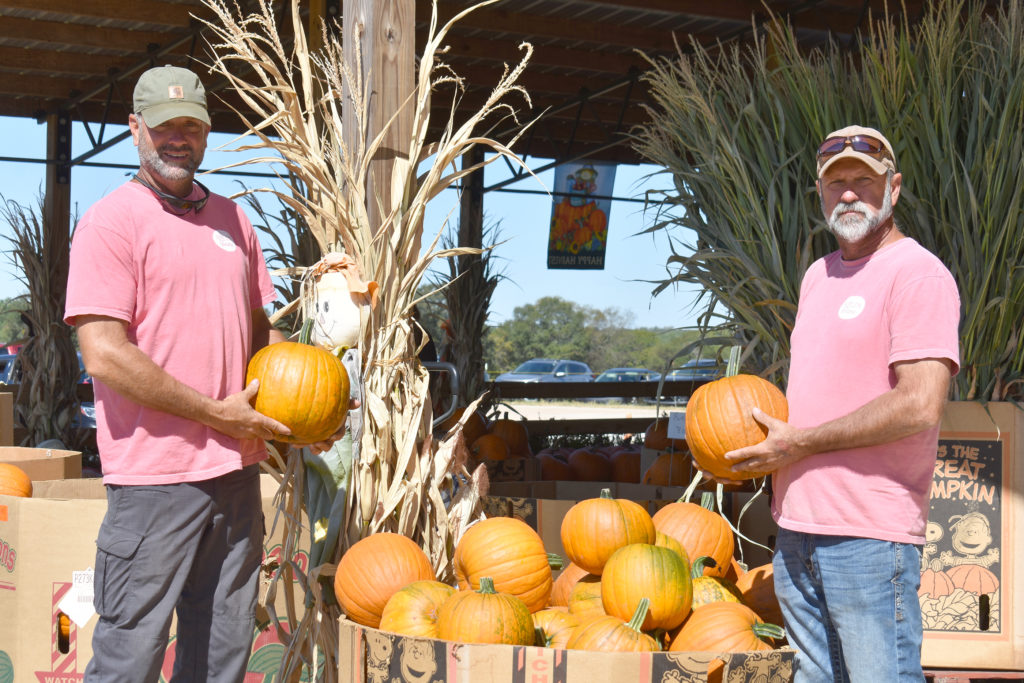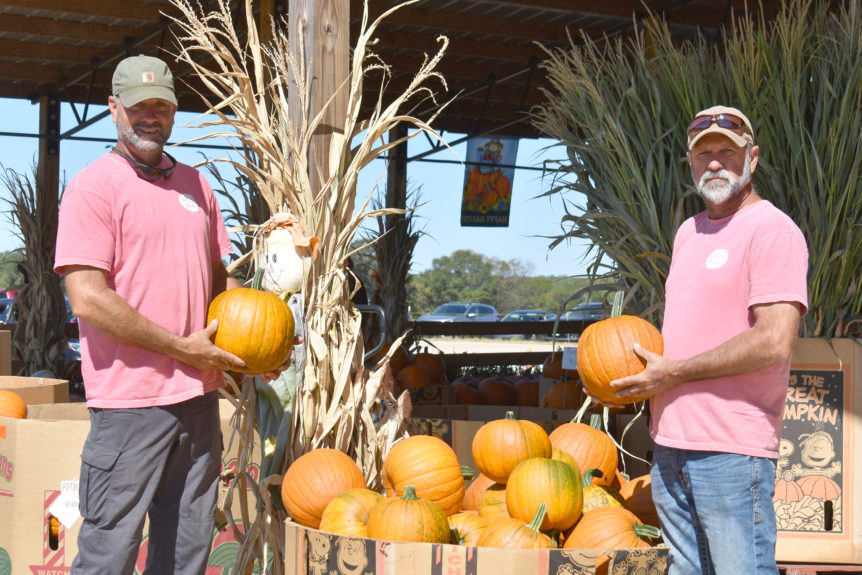
By Clint Thompson
Adaptation equals survival in the specialty crop sector. If producers are not willing to adapt to the changing agricultural times, their livelihoods will be significantly impacted to the point of extinction.
That mindset has elevated one Alabama grower’s business over the last 30 years.
“If you cannot adapt in this business, you will not survive,” said John Aplin, co-owner of Aplin Farms with his brother Tommy, in Dothan, Alabama.
Flocking to the Farm
Aplin’s most significant adaptation involved where and how to market his produce. It is a much different process than when he first started. He transitioned from producing crops for wholesale markets to selling them directly to the consumer. Instead of him traveling to farmers’ markets across the state, consumers are flocking to Aplin Farms.
“We’ve transitioned from almost all wholesale where we were going to retail markets. That’s the little retail Saturday markets where we were going to 16 of those around the state. We quit the last one last year,” Aplin said. “We’ve built all new facilities here, a new barn and a farm store. We do all of the agritourism stuff for pumpkin season and strawberry season. Right now, we have the crowds coming to us.”
Improving Profitability
The change in marketing philosophies has made Aplin Farms more profitable. Aplin said he can grow 10% of what he used to produce and still make the same amount of money.
“I still grow about 100 to 150 acres of fruits and vegetables. But, when we used to ship tomatoes and that’s all we did, we were growing 200 acres of tomatoes. You’re bringing in millions, but you’re also spending millions,” Aplin said. “Now we are spending less money. We are not making quite as much. I’m not bringing in $3 million a year, but I’m not spending $2.7 million to make that $3 million.”
Literally, Aplin was going broke as a farmer. In his old way of doing business, his main customers were the only ones making money.
“When your biggest customer is Walmart, nobody makes money on that deal except for Walmart. For years and years, we were shipping tomatoes all over the United States, Canada and Puerto Rico,” Aplin said. “A lot of our tomatoes were going to Winn-Dixie, Walmart, Publix, places like that. They’re the only ones that make money off of that, even under contract.”
World of Difference
Aplin’s farm is located about 15 minutes from the Alabama-Georgia state line, but his farming operation is vastly different from those of his counterparts in the Peach State.
“We’re a lot different than a lot of other farms around the country, and most of us in Alabama are different than everybody else now. Most of us are working on direct-to-customer sales, unlike when you cross the Georgia line,” Aplin said.
“When you cross the Georgia-Alabama line, it’s a whole different world with the way we do things. Almost everybody in Alabama now does what I do on a larger or smaller scale. Most of the produce grown in Alabama now is focused on selling direct to the public. That’s compared to when you go over to places like Tifton, Georgia, and you look around at the mega farms. Everything from Florida has moved up to South Georgia. That is all about shipping and going to the grocery stores and box stores.”
Pandemic Effect
There have been many defining moments during Aplin’s tenure as an Alabama farmer. Maybe none were more impactful than COVID, which encouraged consumers to be more aware about food safety and where their food originates. Aplin said his business doubled during the pandemic.
“COVID had nothing to do with food, but it made people more aware of how many hands were touching their food; how many times it changed hands before it got to them. They’re looking harder than they were before and asking more questions (about where their food comes from),” Aplin said.
It all goes back to adaptation. Consumers have adjusted their spending habits. Growers like Aplin need to do the same. How farmers profited from their farming operations 30 years ago will not be how they profit this year and over the course of the next 30 years.
“You sit here watching everybody trying to do the same ol’ thing the same ol’ way. Our state farmers’ market here in Birmingham, just like the Atlanta farmers’ market, you go to it and there’s nothing there anymore, because people are not buying at the farmers’ market. They’re buying from the warehouses,” Aplin said.
The old business model where state farmers’ markets did heavy business selling fresh produce in the mornings to stock up customers who might be selling from produce markets and produce stands has changed. It is much easier for those customers to do business with the warehouse suppliers, plus they extend credit to the buyers.
Thriving Business
Aplin Farms is far from being on life support. It is thriving and doesn’t appear to be slowing down. It has produce available the majority of the year. The only down time is November through February. The farm produces strawberries in the spring, peaches, tomatoes and other vegetables in the summer and pumpkins in the fall. Buyers and consumers are coming to the farm, with approximately 38,000 people visiting last season.
Strawberries are predominantly a u-pick crop, while half of the peach crop is u-pick. Between 10% and 20% of vegetables are u-pick, while the rest are sold already picked and processed in some form.
Last year’s pumpkin season in October allowed for more agritourism type of sales, as people visited the many attractions located at Aplin Farms.
Sharing Knowledge
Aplin, a farming veteran, is not averse to sharing his knowledge with the next generation of farmers. He counsels potential growers on what is required to excel in the agricultural sector.
“My first questions to them are: What is your market? How are you going to sell it? If you don’t know how you’re going to sell it, then don’t plant it. You can’t just go with what you think will work. You better research it and figure out what’s going to work before you plant it,” Aplin said. “They better know how to adapt as well.”










